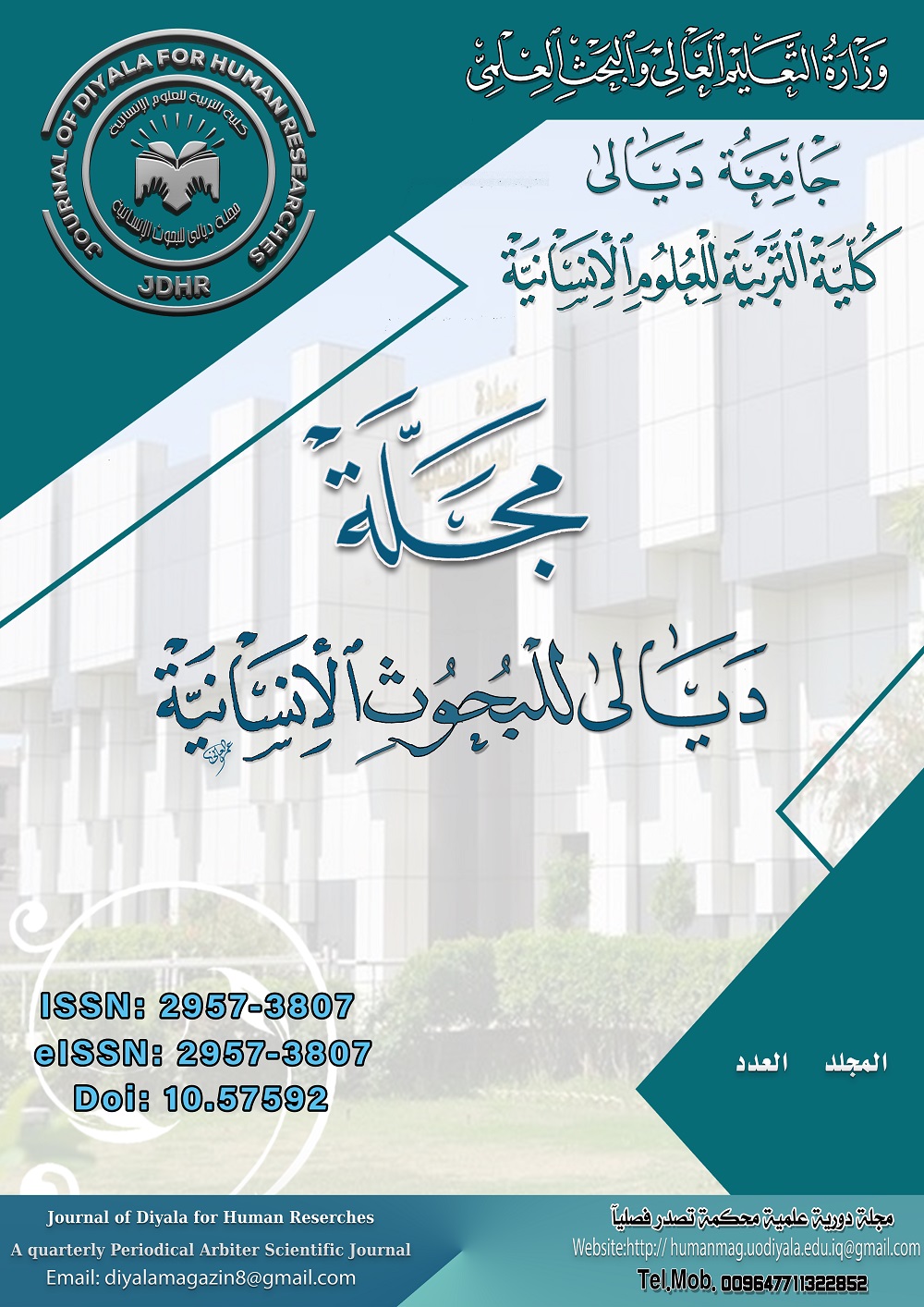الجملة الاسميّة البسيطة المثبتة في (الإمتاع والمؤانسة) دراسة نحويّة دلاليّة
DOI:
https://doi.org/10.57592/p1h68942Abstract
Downloads
Published
2025-10-22
Issue
Section
بحـــــــوث العــــــدد
License
Copyright (c) 2025 Asst. Lec. Dilshad Muhammad Abdullah Hasan ، Asst. Prof. Dr. Zana Shabaz Karim Mustafa

This work is licensed under a Creative Commons Attribution-NonCommercial 4.0 International License.

